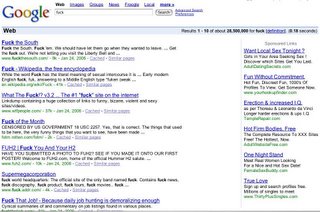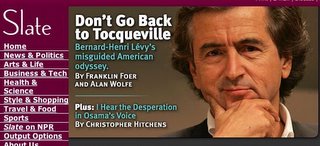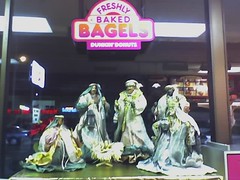The simple no-brainer truth
Of course, the obvious objection is that this would be a pain in the ass for DoJ to do. Oh well.

Penenberg thinks it might vindicate the Court's decision and tries to demonstrate this with some sample Google searches. He says that "69" doesn't turn up much porn in the first few pages. But it does turn up some sex sites (including one for "adult" webmasters) and Google ad for "intimate anonymous sex" that could help the DoJ pass the Court's strict scrutiny test.

It's similar with "fuck"--no actual porn results, but one Google ad for a porn site and several Google ads for sex-personals sites (which arguably hold more danger and comic potential for hapless children).
So what this actually suggests--and this apparently wasn't Penenberg's intention--is that it might be insanely easy for DoJ to gather convincing evidence if its lackeys get off their evil little asses.
One more problem. Penenberg's test, helpful as it is--it doesn't address the possibility that benign words or phrases could yield porn, and that's probably what DoJ is really hoping to find--a few outrageous aberrations. I once searched "Princess Diana" while I was in middle school (this was before Google) and got a porn site.
That said, no matter what DoJ finds, the real work will likely be in making COPA the "least restrictive means" for keeping porn away from children.


